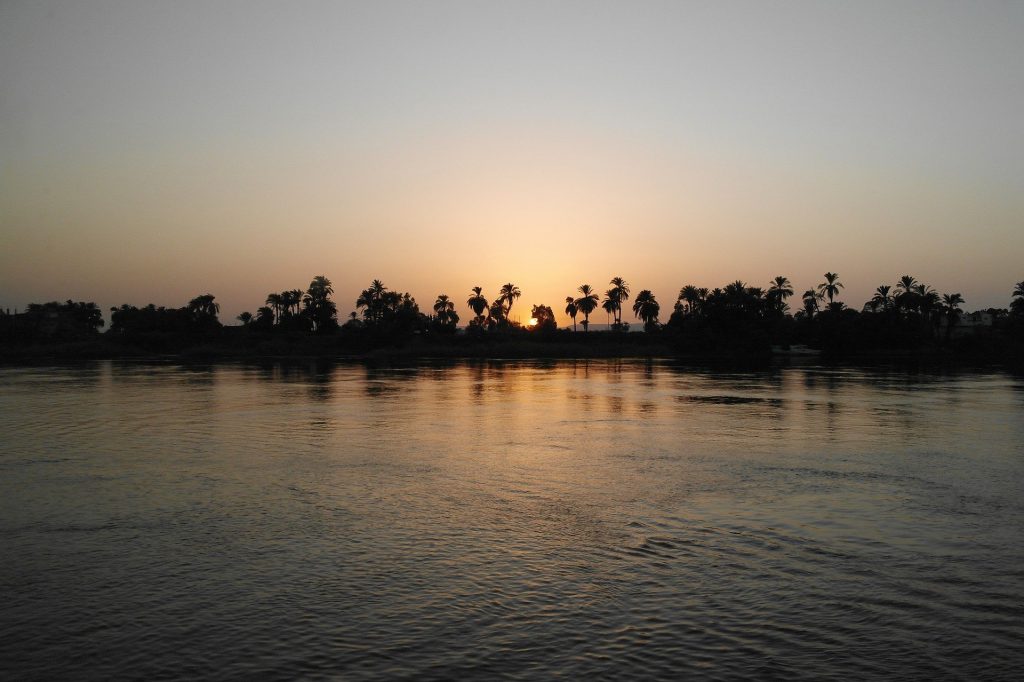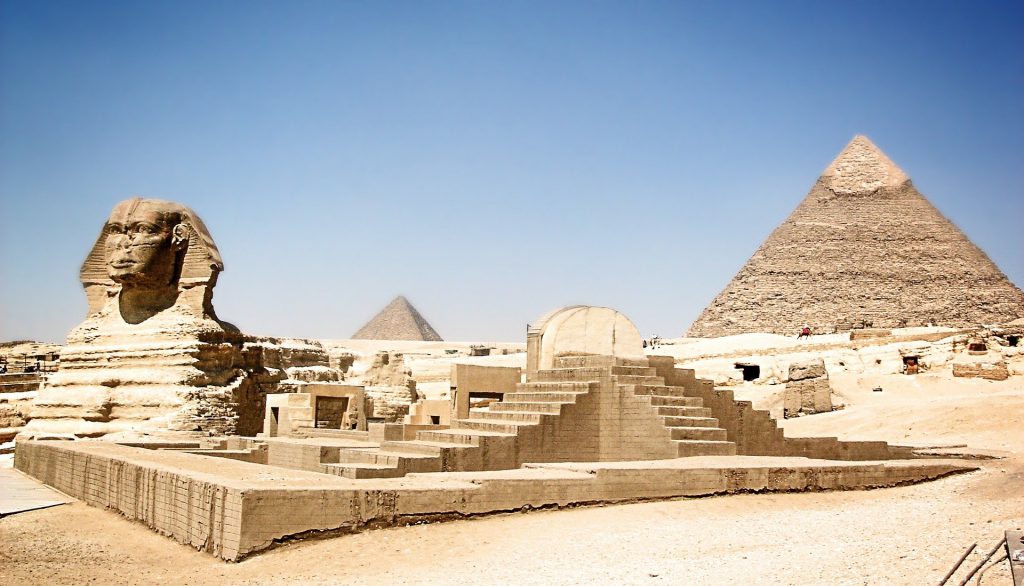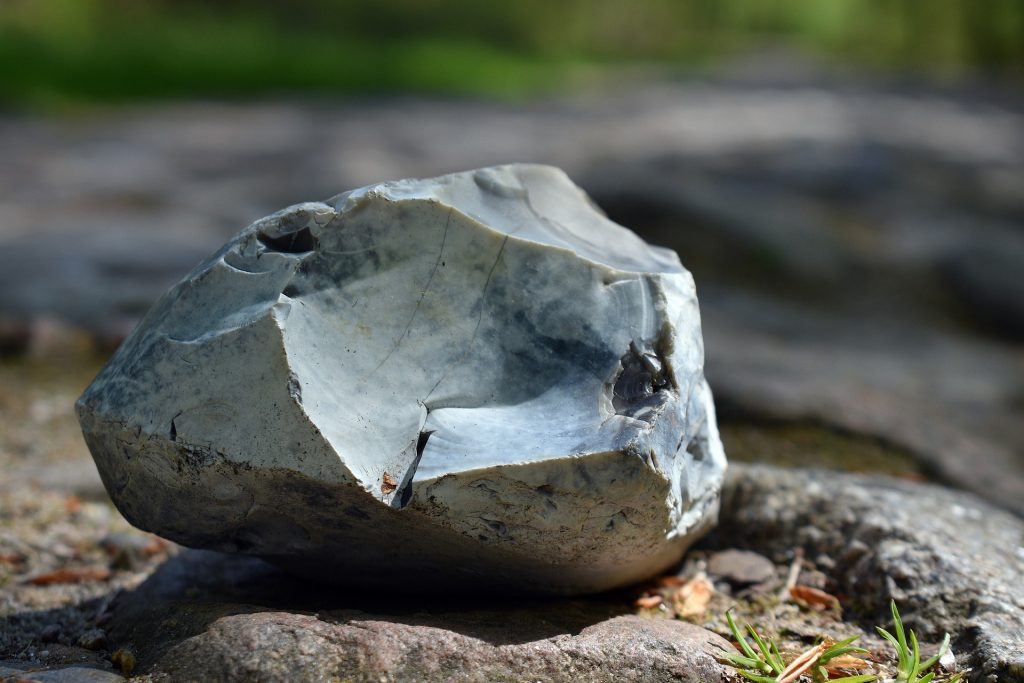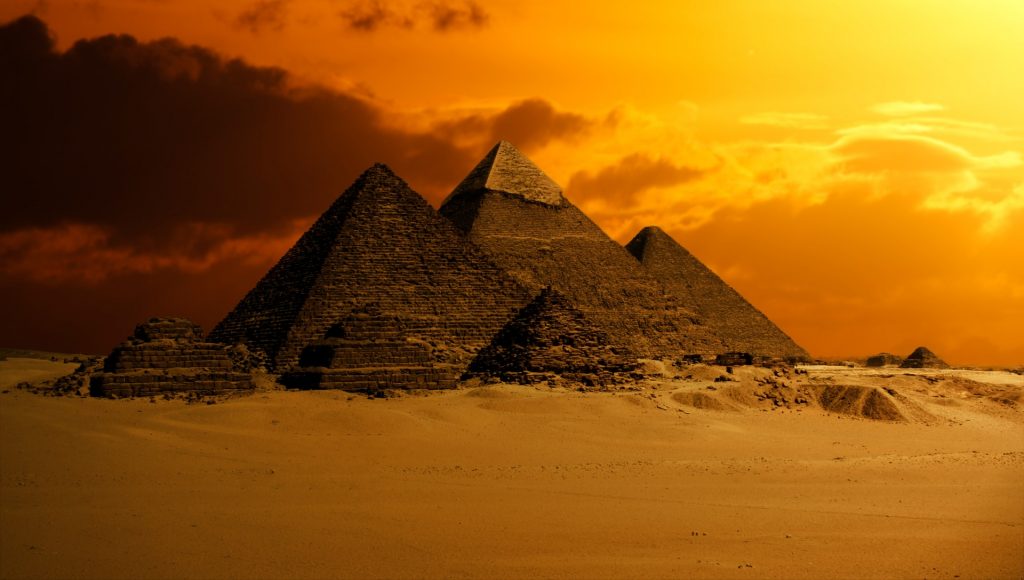
Exodus 1:1 – 6:1
(3-4 Minute Read)
Shemot begins both the Torah parasha, or portion, and Biblical book of the same name. The twelve sons of Israel (i.e. Jacob) came to Egypt with their families. The Israelites were fertile and increased greatly.
A new king arose in Egypt who did not know Joseph. Fearing the numerous Israelites who might side with their enemies, Pharaoh and the Egyptians plotted to enslave them. The Israelites were forced to build the cities of Pithom and Raamses. But the more the Israelites were oppressed, the more they increased.
Pharaoh ordered the Hebrew (i.e. Israelite) midwives to kill all males born among them. Fearing the Almighty, they refused. When Pharaoh asked why they disobeyed him, they claimed that the Hebrew women were not like Egyptian women, giving birth before they could even arrive. The Most High blessed the midwives with households. Pharaoh ordered all his people that every male baby of the Israelites should be thrown into the Nile River and drowned.
A man of the house of Levi married a Levite woman; together they had a son. She hid him for three months. When she could hide him no longer, she prepared a wicker basket with bitumen and pitch. She put the baby in the basket and placed him among the reeds of the Nile. His sister watched from a distance to see what would happen.
The daughter of Pharaoh came to bathe while her maidens walked along the Nile. Seeing the basket, the daughter of Pharaoh discovered the crying baby boy. She felt compassion for him, recognizing him as a Hebrew child. His sister then asked if she should find a Hebrew nurse for the child. Pharaoh’s daughter agreed, and the sister brought the child’s mother. As the child grew, Pharaoh’s daughter made him her son and named him Moses because she “drew him out of the water.”

When he was grown, Moses went out to see his people and their slavery. He witnessed an Egyptian beating a Hebrew man, one of his people. Seeing no one around, he killed the Egyptian and buried him in the sand.
The next day, he found two Hebrews fighting and tried to intervene. The offender retorted, “Who made you a ruler over us? Will you kill me like the Egyptian?”
Moses realized that the matter had become known, and Pharaoh tried to kill him. Moses fled to the land of Midian and sat down beside a well.
The priest of Midian had seven daughters. They came to draw water for their flocks, but shepherds drove them away. Moses rose to their defense and watered their flocks.
When the daughters returned to their father, Reuel (i.e. Jethro), he asked how they returned so quickly. They related that they had been assisted by an Egyptian. He admonished them for not inviting him to his house. Moses consented to stay with him, and he gave Moses his daughter Zipporah as a wife. She bore him a son named Gershom.
A long time after that, the king of Egypt died. The Israelites groaned under the bondage and cried out to the Almighty. The Most heard their cries and remembered His covenant with Abraham, Isaac, and Jacob. The Holy One, Blessed be He, looked upon the Israelites and took note of them.
Moses tended the flock of Jethro, the priest of Midian, and came to Horeb (i.e. Sinai). He gazed and saw a bush in flames but not consumed. Moses turned aside to look closer, and the Most High called out to him from the bush, “Moses! Moses!” He answered, “Here I am.” The Almighty told him to remove his sandals from his feet, because he was standing on holy ground. The Eternal One further declared, “I am the G-d of Abraham, Isaac, and Jacob.” He explained that He had marked well the plight of His people and was mindful of their sufferings. He would rescue them and bring them to Canaan, a land flowing with milk and honey. “I will send you to Pharaoh, and you shall free my people, the Israelites, from Egypt.”
But Moses said, “Who am I to do this?”
The Most High replied, “I will be with you.” He also said that when Moses had freed the Israelites, they would worship the Eternal One in that same mountain.
Moses then inquired what he should say when the Israelites asked him the name of the “G-d of their fathers.” The Almighty said, “‘I Will Be That Which I Will Be.’ You will tell the Israelites that ‘I Will Be’ sent you.” The Holy One, Blessed be He, said further, “You shall say to the Israelites, ‘Yud-Kay-Vav-Kay (i.e. YKVK), the G-d of Abraham, Isaac, and Jacob has sent you. Such shall be My name forever.” The Most High instructed Moses to assemble the elders of Israel and relay all of this to them, including their upcoming deliverance from Egypt to be brought to the land of Canaan.
The Most High commanded Moses and the elders to approach the king of Egypt (i.e. Pharaoh) and declare that the Almighty had manifested Himself to them and they requested to go a distance of three days into the wilderness to offer sacrifices. The Eternal One noted that the king of Egypt would only let them go because of “a greater might.” Thus, the Most High would smite the Egyptians. The Hebrews would not leave Egypt empty-handed; they would borrow gold, silver, and clothing, and thereby strip the Egyptians.
Moses then asked, “What if they don’t believe me or listen to me?”
The Almighty stated that He would perform signs through Moses, namely turning his rod into a snake and making his hand white with leprous scales. The Eternal One said that anyone who was not convinced by the first sign would be convinced by the second. And if not, Moses would be enabled to pour water from the Nile onto the ground, and it would turn to blood.

Moses then protested that he was a man of slow speech who did not speak well. The Most High emphasized that he gave humans the ability to speak, hear, and see, and that He would give him the proper words.
Finally Moses simply requested that the Almighty make somebody else his agent. The Eternal One became angry, yet allowed him to be accompanied by Aaron, who was on his way to meet Moses. Moses was also told to be sure to take the rod with him to perform the signs.
Moses asked his father-in-law permission to go back to see how his people in Egypt were faring. Jethro agreed. The Almighty again instructed Moses to return to Egypt, noting that all those who sought to kill him were dead. The Eternal One stated that Moses would perform marvels in Egypt, but He would stiffen Pharaoh’s heart and in turn he would not let the people go. Moses would ultimately declare to Pharaoh that the Almighty said, “Israel is my first-born son. I have said to let him go that he may worship me. Yet you have refused, and now I will slay your first-born son.”
At a night encampment, the Almighty “encountered” Moses and nearly killed him. Moses’ wife, Zipporah, used a flint stone to circumcise her two sons. She complained, “You are a bloody husband to me!” Then the Most High left Moses alone.
The Eternal One told Aaron to meet Moses in the wilderness. They met at the mountain of Sinai. Moses informed him of all that the Almighty had instructed him, and together they went and assembled the Israelite elders. Hearing the words and seeing the signs, they bowed low in homage, knowing that the Most High had seen their plight.
Moses and Aaron went to Pharaoh, saying, “Thus says the Almighty, Let my people go, that they may celebrate a festival in the wilderness.”
But Pharaoh retorted that he knew nothing of the Most High, much less that he should heed Him. He also accused Moses and Aaron of distracting the people, who were becoming ever more numerous, from their slave labor.
That same day Pharaoh charged the Egyptian taskmasters that they should no longer provide straw for the bricks, but that the Hebrews must provide their own straw while still meeting their original daily quota of slave work. He did so claiming that they were shirkers of their alleged duties as slaves, and for that reason they sought to go and sacrifice to the Almighty.
The taskmasters did so and oppressed the Israelites. The Hebrew foremen came to Pharaoh and complained, but he retorted that they were merely lazy and refusing to work properly. The foremen then criticized Moses and Aaron for making them loathsome in the eyes of Pharaoh, and even putting their lives at risk.
Moses complained to the Eternal One, saying, “Why did you send me? Now Pharaoh treats the Hebrews even worse than before, and You still have not delivered them.”
Then the Almighty said to Moses, “You shall soon see what I do to Pharaoh. He shall let the people go because of a greater might and drive them out of the land.”

An interesting aspect of this Torah portion is how reluctant Moses was to perform his assigned mission.
An interesting aspect of this first parashah is the fact that Moses apparently wasn’t excited about the Almighty’s task for him. He made excuse after excuse to get out of the job, until the Eternal One started to get angry. There are a variety of ideas as to why Moses didn’t want the task, but one idea is that he still felt deflated and defeated after his execution of the Egyptian forty years prior. He saw the situation as hopeless and had given up long ago. Now, despite the Most High’s description to the contrary, he saw this task as a fool’s errand and maybe even a suicide mission doomed for failure.
The account of Zipporah circumcising her two sons is particularly puzzling, namely because the text of the Torah says that the Almighty “encountered” Moses and “sought to kill him.” But what does that mean? How did Moses get to this point? And what did that have to do with the brit milah, or circumcision, of her two sons?
This topic is widely debated with a multitude of possible answers. Some have suggested that Moses was yet again trying to get out of the Almighty’s task for him to be His agent to deliver the Jewish people from Egypt. Moses knew that brit milah was the sign of the covenant between the Holy One, Blessed be He, and Abraham as well as his descendants. By refusing to circumcise his sons, Moses was effectively trying to disqualify himself from the Almighty’s mission by not being a proper part of that covenant. The idea is similar to Jonah fleeing towards Tarshish to avoid the Most High’s instruction to go to Nineveh. However, what Moses (and Jonah) did not realize is that when a person strays so far from the purpose for which the Almighty created him or her, then they have no reason to exist. And not having a reason to exist results in death. If Moses was not to be our Teacher who delivered us from Egypt through the power of the Most High, then he had no reason to exist. Therefore, his life was in jeopardy.

According to this theory, Zipporah, however, somehow realized what was happening. Angry that Moses nearly deprived her of her husband and maybe even her two sons, she did the circumcisions herself with a flint rock. This suggestion also explains her rhetoric in which she called Moses a “bloody husband.” She was accusing him of nearing killing her entire family. Regardless, after this incident, Moses no longer protested and committed himself to the Almighty’s mission.
Another important facet of Shemot is that the Almighty emphasized repeatedly that He had taken note of the suffering, misfortune, and wretched condition of His people. The Hebrews had been enslaved for hundreds of years by this point, and they had given up any sense of hope. However, the Most High made it clear that, despite seemingly being hidden, He was actively aware and noting all that happened. Accordingly, the Eternal One declared that now was the time for deliverance, despite Pharaoh’s stubborn insistence to the contrary.
May the Holy One, Blessed be He, grant us the strength to ever pursue our purpose that He has dictated for our lives. And may we always remember that the Almighty is with us, even when He seems distant and hidden.


